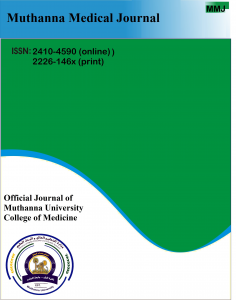
Research Article 
Hakeem JK¹, Estabraq A Al-Wasiti2*, Alaa NH, Anam R. Al-Salihi³
Research Article
Cryopreservation is a process where cells or whole tissues are preserved by cooling to low sub-zero temperatures, such as (typically) -80°C or -196°C and this process use extensively in programs of in vitro fertilization (IVF). This study is an attempt to evaluate DNA fragmentation in the cell after cryopreservation/thawing cycle when using different types of cryoprotectant (CPA), sixty mature fertile male mice were used in the current study, the mean age of these mice were ten weeks. Fifteen of them were considered as control group and the rest (forty five) as cryopreserved group, this group was divided into three subgroup according to the type of cryoprotectant (glycerol, 1, 2 propanediol and dimethylsulfoxide), each subgroup composed from fifteen mice. The testes were cryopreserved for six weeks then DNA fragmentation assay was done by single cell gel electrophoresis (comet assay). Comet results of the present study showed a highly significant (P<0.0001) increase in DNA damage in the cryopreserved testis (33.26%, 38.8% and 30.6% represent cryoprotectant glycerol, 1, 2 propanediol and dimethylsulfoxide respectively) compared with control group (23.06%) after six weeks of cryopreservation. From the results of the present study, it was concluded that there was increase the levels of DNA fragmentation in the testicular tissue after cryopreservation /thawing cycle differs according to the type of cryoprotectant, Dimethylsulfoxide cryoprotectant provides good protection to the testicular tissue and DNA in cryopreservation /thawing cycle than glycerol and 1, 2 propanediol.
Keywords: Cryopreservation; DNA; Testicular tissue of mice